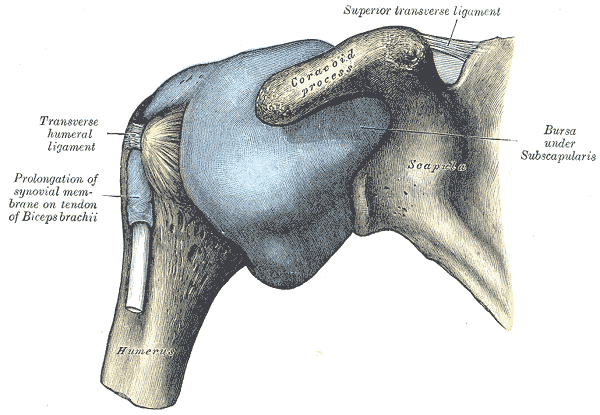|
BOOK NOW |
ASK ABOUT YOUR PAIN |
Home > Blog > Physiotherapy > Frozen Shoulder Physiotherapy
Frozen Shoulder Physiotherapy

Medical term of frozen shoulder is adhesive capsulitis, and it refers to a shoulder capsule disorder, where the connective tissues around the shoulder joint (medically known as the glenohumeral joint) becomes
- swollen,
- inflamed
- painful and
- stiff,
- reducing your shoulder movement severely with presence of persistent aching and even sharp pain in the shoulder.
symptoms of frozen shoulder
Patients who suffer from frozen shoulder often report experiencing a lot of pain, discomfort and resulting in inability to participate in life such as wearing/removing clothing, driving, carrying, writing - anything that involves shoulder and hand movement.
It causes shoulder movement to be very, very restricted due to both the tightness as well as the pain, which is persistent/ongoing and is amplified with:
- sudden movements
- colder/lowering of temperature
- sleeping/at night
If you combine the symptoms and experiences above, you may see that frozen should makes life, responsibilities and work very difficult. In fact, accidental "taps or bumps" by people or even items can cause strong pain response that may linger for minutes or longer (this is very debilitating).
how does frozen shoulder starts?
Medical researchers hadn't found out the reasons why frozen shoulder actually occurs, though we found that it usually happens in individuals over 40 years old. It may or may not occur with trauma (ie it can occur out of the blue), but it may happen with trauma too.
What patients report is that during the early stages of frozen shoulder, they may or may not have experienced any trauma, but what they remember is that they "suddenly" find that they have a shoulder that is painful, stiff and difficult to move. With time, the pain eases and improves over a period of 6-12 months but the stiffness stays or worsens over time.
frozen shoulder physiotherapy

Frozen shoulder physiotherapy almost always begins with a focus first on pain relief, and the main reason for this is that once we have decreased the pain experience, it'd be so much easier and better for the patient to have less or no pain.
Hence once we've dealt with the pain, then only we can start working on the issue of stiffness and tightness in the shoulder. Patients are recommended to start shoulder physiotherapy as soon as possible once they start experiencing shoulder pains and tightness from frozen shoulder, as the earlier we can get into the shoulder joint to manage pain and stretch out the soft tissue and capsules, the faster the pain can be managed and return to pain-free life.
Physiotherapy interventions will be a mix of
- manual soft tissue stretching
- deep tissue massage
- soft tissue release
- heat therapy
- combined with a very specific home program of exercise and movement therapy
for our patient to do between physiotherapy sessions.
The exact cause of frozen shoulder unfortunately is still unknown, and can last from 3 months to 5 years or longer. Patients who suffer from frozen shoulder often suffer problems sleeping because of the pain in the shoulder that increases
- at night
- when it is cold/lower temperature
- when immobilized in a particular posture for long periods (of rest/sleeping)
Frozen shoulder may also cause issues such as back pains and neck pains, depression and chronic pain; affecting work, life and pleasure.